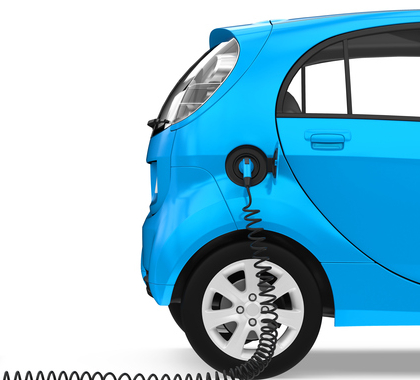Tesla reported second quarter results earlier this month. Despite losing $718 million during the quarter, Tesla shares rose 16 percent on renewed promises of profitability. Driven by government incentives and mandates, world automakers have announced big electric car introduction plans. But will any electric car firm be able to make money?
Start-up automobile companies face long odds. Over the last ten years, Tesla posted cumulative losses of over $3 billion. In the second quarter, Tesla began to ramp production of its new Model 3 sedan, producing more than 50,000 cars. Tesla also promises to attain profitability in the near future, but the firm is about to face rapidly growing electric car competition.
World auto makers have not only embraced electric cars, but now appear to be competing to introduce the most electric models. More than 400 fully electric or hybrid electric vehicles have been announced. BMW plans to introduce 12 all electric and 13 hybrids into its lineup by 2025. Ford announced an $11 billion investment, 16 fully electric, and 24 plug-in hybrid electric cars by 2022. Toyota, Volkswagen, General Motors, and others appear to be all in for electrics.
Hybrid electric vehicles, such as the Toyota Prius, use a conventional internal combustion engine along with an electric motor system to improve mileage. Hybrids can’t be plugged-in and charged. After ten years of production, Toyota was finally able to turn a profit on the hybrid Prius. Hybrid electric cars, which do not suffer the range limitation of fully electric cars, grew to about three percent of global vehicle sales in 2017.
Plug-in hybrid electrics, such as the Chevrolet Volt, can plug-in and run wholly on electric batteries but also use a gasoline engine for longer trips. Battery electric vehicles, such as the Tesla Model S and the Nissan Leaf, are fully electric and run only on batteries. Neither plug-in hybrid electrics nor fully electric vehicles are yet profitable.
UBS analysts estimate that General Motors loses $7,000 on every one of its new Bolt battery electric cars. The Bolt battery pack costs about $10,000‒$12,000, or up to one-third of the Bolt price tag. Daimler, Peugeot, Honda, and other auto makers warn of looming electric car losses.
Where is the demand to support all these new electric car models? Entrepreneurs and new companies traditionally achieve success by meeting a market need (market-pull strategy), or by developing a new technology to create a new market (technology-push strategy). An example of market-pull was the digital camera, which addressed the need for a camera able to take endless pictures that could be displayed almost immediately. Touch screen technology now found in PDAs, smart-phones, and computers is an example of technology-push. The electric car craze may be neither market-pull nor technology push, but instead is driven by government incentives and mandates.
Over the last decade, world nations established large financial incentives to promote electric vehicle adoption. Australia, China, India, Japan, the US, more than 20 nations in Europe, and others offered tax credits, deductions, and subsidies to consumers and businesses, but electric car growth has been disappointing. Battery electric vehicles comprised only 0.8 percent of the 86 million cars and light trucks sold globally in 2017.
Even this small consumer demand for electric cars is thin. When tax benefits are cut, demand plunges. A reduction in electric car vehicle registration tax exemptions in Hong Kong and Denmark caused demand to drop more than 80 percent in those nations.
With subsidies largely ineffective, governments in Europe now plan to ban internal combustion engine car sales in the name of saving the environment. Bans on the sale of gasoline and diesel cars have now been adopted in France, Germany, Netherlands, and Norway, to begin in 2030 or 2040. California, other locations, and other nations are considering similar bans.
Are consumers going to be forced to shift to electrics? Electric cars have advantages of fast acceleration, lower maintenance costs, and lower fuel cost. But the fuel cost advantage will narrow when governments impose vehicle and fuel taxes as electric car penetration grows. Electric car deficiencies are major, including high purchase price, short driving range, small carrying capacity, lack of charging stations, long charging times, and expensive battery packs that need to be replaced during the life of the vehicle.
Auto makers are in a tough position. Demand for electric cars is small, but governments intend to force auto firms to convert their car lines to electrics. Hundreds of new car models chasing only five percent of the market is a recipe for financial debacle.
Look for big auto company electric car losses and a growing resale market for traditional gasoline and diesel vehicles.
[Originally Published at the Washington Times]





